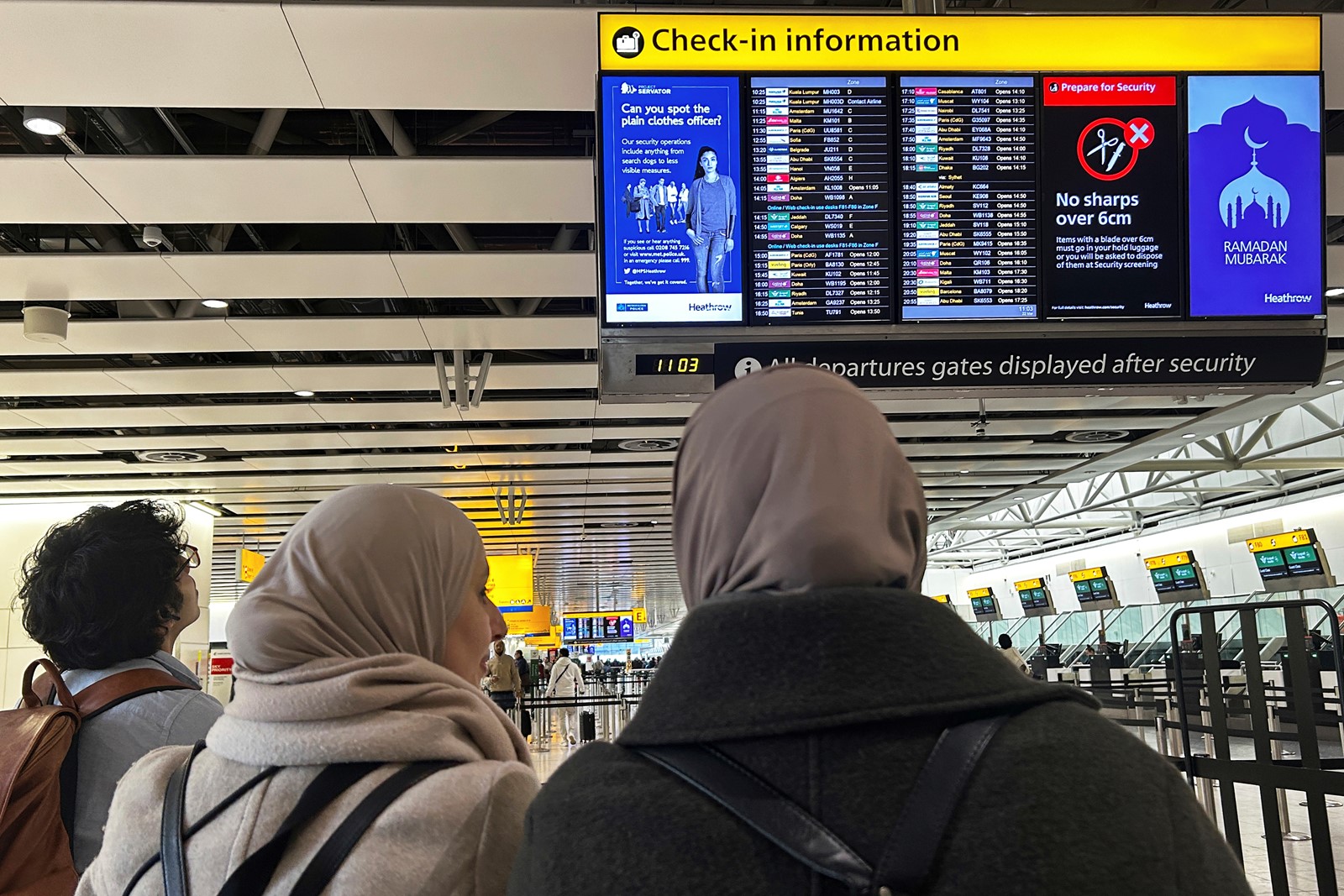
LONDON — The British government ordered an investigation Saturday into the country’s “energy resilience” after an electrical substation fire shut Heathrow Airport for almost a day and raised concerns about the U.K.’s ability to withstand disasters or attacks on critical infrastructure.
While Heathrow said it was “fully operational,” thousands of passengers remained stuck, and airlines warned that severe disruption will last for days as they scramble to relocate planes and crews and get travelers to their destinations.
Inconvenienced passengers, angry airlines and concerned politicians all want answers about how one seemingly accidental fire could shut down Europe’s busiest air hub.
“This is a huge embarrassment for Heathrow Airport. It’s a huge embarrassment for the country that a fire in one electricity substation can have such a devastating effect,” said Toby Harris, a Labour Party politician who heads the National Preparedness Commission, which campaigns to improve resilience.
Energy Secretary Ed Miliband said he’d asked the National Energy System Operator, which oversees U.K. gas and electricity networks, to “urgently investigate” the fire “to understand any wider lessons to be learned on energy resilience for critical national infrastructure.”
It is expected to report initial findings within six weeks.
“The government is determined to do everything it can to prevent a repeat of what happened at Heathrow,” Miliband said.
Heathrow announced its own review, to be led by former transport secretary Ruth Kelly, a member of the airport’s board.
More than 1,300 flights were canceled and around 200,000 people stranded Friday after an overnight fire at a substation 2 miles from the airport cut power to more than 60,000 properties.
Heathrow said Saturday that it had “added flights to today’s schedule to facilitate an extra 10,000 passengers.” British Airways, Heathrow’s biggest airline, said it expected to operate about 85% of its 600 scheduled flights at the airport on Saturday.
While many passengers managed to resume stalled journeys, others remained in limbo.
Laura Fritschie was on vacation with her family in Ireland when she learned that her father had died. On Saturday she was stranded at Heathrow after her BA flight to Chicago was canceled at the last minute.
“I’m very frustrated,” she said. “This was my first big vacation with my kids since my husband died, and ... now this. So I just want to go home.”
Residents in west London described hearing a large explosion and then seeing a fireball and clouds of smoke when the blaze ripped through the substation. The fire was brought under control after seven hours, but the airport was shut for almost 18 hours. A handful of flights took off and landed late Friday.
Police said they do not consider the fire suspicious, and the London Fire Brigade said its investigation would focus on the electrical distribution equipment at the substation.
Still, the impact of the fire left authorities facing questions about Britain’s creaking infrastructure, much of which has been privatized since the 1980s. The center-left Labour government has vowed to improve the U.K.’s delay-plagued railways, its aged water system and — especially — its energy network.
“The last 40, 50 years we’ve tried to make services more efficient,” Harris said. “We’ve stripped out redundancy, we’ve simplified processes. We’ve moved towards a sort of ‘just in time’ economy. There is an element where you have to make sure you’re available for ‘just in case.’ You have to plan for things going wrong.”
Willie Walsh, who heads aviation trade organization IATA, said the episode “begs some serious questions. How is it that critical infrastructure — of national and global importance — is totally dependent on a single power source without an alternative?”


 PREVIOUS ARTICLE
PREVIOUS ARTICLE
